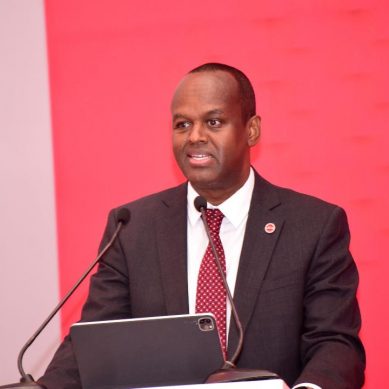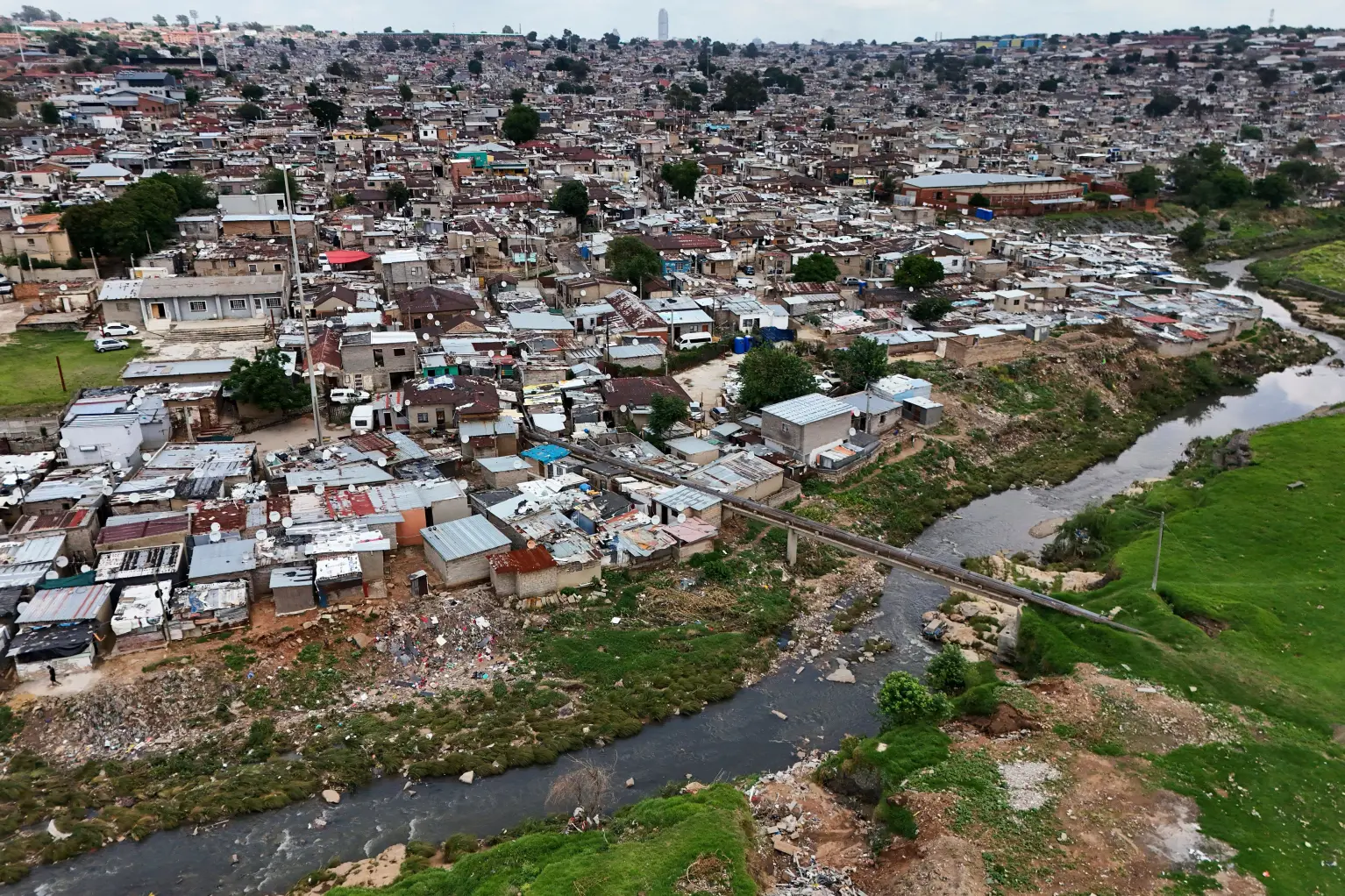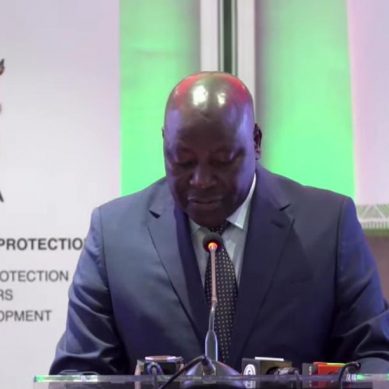
As the UN peacekeeping mission in eastern DR Congo ends, the emotional and physical scars the soldiers are leaving behind will last a lifetime. In addition to the brutality meted out by the nearly 300 militia groups, Beni region has to grapple with a burgeoning demography of children sired by the departing peacekeepers.
The question that arises and which UN has to answer is: Who takes care of the children that resulted from sexual abuse?
Josué Kapisa, a community leader from the Nzuma district, said he thinks it takes too long for peacekeepers to get authorisation from their superiors to leave their barracks upon receiving reports of ADF incursions.
Kapisa said Nzuma was attacked several months ago by ADF fighters who looted a clinic and killed two children. The attack was close to a UN base, Kapisa said, but peacekeepers “only fired bullets in the air without daring to leave their enclosure”.
A MONUSCO official responsible for liaising between peacekeepers and local communities offered a similar assessment, criticising the slowness of certain contingents to act on intelligence.
The official said they will often alert camp commanders about an attack, but the commanders will then wait for an order from higher-ranking colleagues who are stationed in bigger towns several hundred kilometres away.
“Unfortunately, the enemy expects no response,” said the official, who asked not to be named to avoid sanction. “He attacks and kills the civilians who have alerted us, and when we arrive late, we only count the dead.”
Makasi, the youth council member from Batangi-Mbau, said communities also face language barriers that prevent them from sharing useful information and intelligence with some peacekeeping units.
“Sometimes we may have information that we would like to share only with the brigade commander, but how can we get it to him without going through interpreters?” Makasi said.
“If I come across rebels and while escaping I see South African peacekeepers who speak neither French nor Kiswahili, how am I going to alert them?” he added. “How can [MONUSCO] deploy people who don’t speak our language?”
Isaac Kavalami, the president of civil society groups in the town of Oicha, says language issues can lead to rumours forming about the peacekeepers and their mission.
He gave an example of a group of youth who recently saw peacekeepers unloading food from a broken-down vehicle. When they asked the peacekeepers what was happening, the soldiers responded in English, causing a misunderstanding.
“[The youth] then entered the village and claimed to have met peacekeepers supplying rebels with food,” Kavalami said. “This is how rumours can invade and destroy confidence in the peacekeepers.”
Despite the perceived language issues and cumbersome processes, MONUSCO should still have had enough firepower to prevent attacks, said Kabulwese, the Beni-Mbau youth council secretary.
“They have an offensive mandate, so they should engage in combat,” Kabulwese says. “They are not civilians, they are soldiers. They should stop watching us die.”
A former ADF hostage who spent four months in captivity, and passed through six different camps, said they don’t understand how MONUSCO and the Congolese army have struggled to defeat the rebels, who they said are lightly armed by comparison.
The former hostage said they would often walk around with a group that had two belt-fed machine guns between them, the first at the front of the line, the other at the back. The rest had Kalashnikovs with a few cartridges each, they said.
Dalmas Nzingene, a youth leader from Mbau who lost several relatives in ADF attacks, said peacekeepers don’t follow the recommendations given to them by local communities. Nzingene said he participated in regular community meetings with peacekeepers but felt they were more interested in excusing their failures than taking on advice and seeking to improve.
“The peacekeepers justify themselves and claim that they are only a support force that have come to support our Congolese soldiers,” Nzingene said. “Indirectly, they ask us to hold our government forces responsible.”
Lo said MONUSCO has implemented several mechanisms to engage with communities in Beni, including deploying national staff to work as community liaison assistants in all six of its military bases in the territory.
The national staff act as intermediaries between MONUSCO’s military personnel, local authorities and the local population, who they support to develop protection plans and manage a community alert network, Lo added.
While the peacekeepers are accused of inaction during active attacks, their pre-planned military operations against the ADF have also been criticised by local residents and researchers.
Aggressive operations that strayed away from traditional peacekeeping principles provoked deadly reprisal attacks on peacekeepers and escalated overall violence against civilians, researchers have argued.
The mission’s strategy of partnering with the Congolese army also proved counterproductive at certain times, as senior army officials were accused of recruiting participants to engage in attacks alongside the ADF.
Aerial bombardments have, meanwhile, been carried out by the mission on ADF camps hidden away in dense jungle canopy where it is hard to determine whether strikes might hit the scores of women, children, and other civilian hostages kept there.
Three former hostages said they experienced what they believe were MONUSCO aircraft bombing the camps where they were held, and said far more hostages than rebels were killed on every occasion.
“During my captivity, we were attacked at least six times by MONUSCO helicopters,” said a 14-year-old girl who was held as a sex slave in ADF camps before escaping in late 2022. She said women and children were among the casualties.
Lo said MONUSCO undertakes “extensive efforts” to minimise harm to civilians during its military operations, adding that the mission has not conducted any air raids in Beni over the past few years.
Lo did not say whether MONUSCO was aware of any civilian casualties resulting from its aerial strikes, and did not provide further details of assessments taken before raids, as was requested by our reporters.
Almost everyone interviewed also mentioned sexual abuse and exploitation by peacekeepers as a major issue affecting communities in Beni. Two women said they had had relationships and children with MONUSCO troops.
Interviewees said UN troops bribed the families of some women with peacekeeper-fathered children to pay for their silence, while others cited cases where women struggled to identify perpetrators because they had used false identities.
The two women said survivors of abuse and exploitation have received little support from MONUSCO and the UN member state countries where the implicated peacekeepers are from.
Papy Kasayi, a youth leader from Beni, called on MONUSCO to deal with outstanding paternity cases and other allegations of sexual abuse and exploitation before completing its disengagement from DRC.
“They have had children with our sisters. It is important that they settle before they go, to avoid leaving us with problems,” Kasayi said. “What will become of these children without a father?”
Lo said MONUSCO has strengthened efforts to prevent and respond to sexual misconduct by holding contingent commanders accountable for enforcing strict discipline, and by holding regular training programmes on misconduct prevention.
Lo said UN police conduct patrols to see if peacekeepers are visiting prohibited areas or have unauthorised passengers in their vehicles, while a conduct and discipline team conducts risk assessment visits to areas where the risk of misconduct is higher.
The spokesperson said efforts to address sexual exploitation and abuse involving peacekeepers will be a priority for UN agencies that remain in DRC following MONUSCO’s withdrawal.
“While the disengagement of the peacekeeping mission is ongoing, the UN country team will remain and will receive and address any new reports of sexual exploitation and abuse, including paternity claims,” Lo said.
It is unclear when MONUSCO will fully withdraw from Beni. The government had asked all peacekeepers to leave DRC by the end of the year, although officials recently called for a pause given the security crisis triggered by the M23 and its Rwandan backers.
A drawdown from the war-scarred South Kivu province was completed earlier this year – residents there expressed more mixed feelings about the withdrawal to The New Humanitarian – and troops have already left the regions of Kasai and Tanganyika.
Kasayi, the youth leader, said communities in Beni feel the peacekeepers are less committed than they were previously given their mission is nearing its end, preferring to patrol national roads rather than deep in the forest “where the enemy is hiding”.
Nzingene, the youth leader from Mbau district, said the mission will leave DRC in a similar position to when it came. “They found us at war and want to leave us at war,” he said. “They have been here too long to have done nothing.”
- The New Humanitarian report








